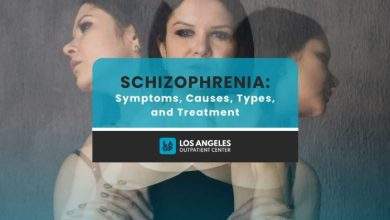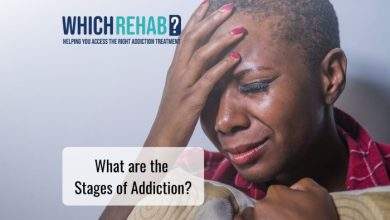
Living with both a mental health disorder and a substance use disorder can be overwhelming. When these two conditions occur together, it’s called dual diagnosis or co-occurring disorders. Early recognition of the signs that you or a loved one might need dual diagnosis treatment in New Jersey is crucial. Proper, integrated care improves the chances of long-term recovery and a better quality of life.
In this blog, we’ll explore the early warning signs of dual diagnosis, explain why early intervention matters, and guide you toward seeking effective treatment in NJ.
What is Dual Diagnosis?
Before diving into the signs, let’s clarify what dual diagnosis means. Dual diagnosis occurs when a person experiences both a mental health disorder (like depression, anxiety, bipolar disorder, or PTSD) and a substance use disorder (SUD) at the same time. These co-occurring disorders are closely linked and can impact each other, making recovery more complex.
Many people with untreated mental health issues turn to alcohol or drugs to self-medicate their symptoms. Conversely, substance use can trigger or worsen mental health problems. Because the two conditions are so intertwined, treating only one without addressing the other can lead to relapse or incomplete recovery.
Why Early Detection of Dual Diagnosis is Important
Recognizing the early signs of dual diagnosis means you can get timely help. Early intervention can:
- Prevent the worsening of both mental illness and addiction
- Reduce risks of severe health complications
- Improve success rates for recovery programs
- Help you rebuild relationships and regain control of life
If you’re in New Jersey and suspect you or someone you care about is showing signs of both mental health and substance use issues, knowing what to look for is the first step.
Early Signs of Dual Diagnosis
1. Changes in Mood and Behavior
Sudden or extreme mood swings that don’t seem to have a clear cause can signal an underlying mental health disorder. You might notice:
- Intense feelings of sadness, hopelessness, or irritability
- Episodes of anxiety or panic attacks
- Periods of hyperactivity or agitation
At the same time, these mood changes may be accompanied by risky or secretive behaviors related to substance use, such as hiding bottles or drug paraphernalia, or withdrawing from usual social activities.
2. Difficulty Managing Daily Life
People struggling with dual diagnosis often find everyday tasks overwhelming. This can include:
- Neglecting personal hygiene or appearance
- Skipping work, school, or important appointments
- Forgetting responsibilities or failing to meet deadlines
Substance use can worsen these problems, making it harder to focus, stay organized, or cope with stress.
3. Withdrawal from Family and Friends
Isolation is a common early sign. If you or a loved one starts avoiding social interactions, cancels plans frequently, or stops participating in once-loved activities, this could be a red flag. Isolation can stem from:
- Shame or guilt about substance use
- Anxiety or depression symptoms
- A need to hide behaviors from loved ones
4. Changes in Sleep or Eating Patterns
Both mental health disorders and substance abuse can disrupt basic bodily functions. Watch for:
- Sleeping too much or too little
- Frequent insomnia or nightmares
- Loss of appetite or overeating
- Unexplained weight gain or loss
5. Increased Tolerance and Withdrawal Symptoms
One of the hallmarks of substance use disorder is needing more of the drug or alcohol to get the same effect — known as increased tolerance. You might also observe withdrawal symptoms like:
- Nausea, sweating, or shaking when not using
- Irritability or restlessness
- Headaches or muscle pain
These physical symptoms often overlap with mental health issues, complicating the diagnosis.
6. Risky or Impulsive Behaviors
Impulsivity, such as reckless driving, unsafe sex, or aggressive outbursts, is common in people with untreated mental illness or addiction. Substance use may amplify these tendencies, leading to dangerous situations and legal troubles.
7. Persistent Feelings of Guilt or Shame
Individuals facing dual diagnosis often struggle with self-esteem. They may feel guilty about their substance use or ashamed of their mental health symptoms, which can worsen both conditions.
8. Suicidal Thoughts or Self-Harm
Sadly, co-occurring disorders increase the risk of suicidal ideation or self-harming behaviors. If you or someone you know is experiencing these thoughts, seek immediate professional help.
Common Mental Health Disorders That Co-Occur With Substance Use
Some mental health conditions are more frequently seen alongside addiction:
- Depression: Persistent sadness, fatigue, loss of interest.
- Anxiety Disorders: Excessive worry, panic attacks, restlessness.
- Bipolar Disorder: Extreme mood swings from highs (mania) to lows (depression).
- Post-Traumatic Stress Disorder (PTSD): Flashbacks, nightmares, hypervigilance following trauma.
Understanding which mental illness might be present can help tailor treatment plans in New Jersey dual diagnosis programs.
Why Dual Diagnosis Treatment in NJ is Different
Standard addiction treatment focuses solely on stopping substance use, while mental health treatment addresses psychiatric symptoms. Dual diagnosis treatment in NJ integrates both approaches, recognizing the interconnected nature of co-occurring disorders.
This integrated approach typically includes:
- Comprehensive assessment and diagnosis of both disorders
- Medical detoxification under supervision if needed
- Individual and group therapy focusing on mental health and addiction
- Medication management to address psychiatric symptoms
- Support groups tailored for co-occurring disorders
- Aftercare and relapse prevention planning
How to Get Help for Dual Diagnosis in New Jersey
If you recognize these signs in yourself or a loved one, seeking professional support is the next step. Here’s how to proceed:
1. Reach Out for a Confidential Screening
Many NJ treatment centers offer confidential assessments to determine if dual diagnosis treatment is appropriate. These screenings may include interviews, questionnaires, and lab tests.
2. Verify Insurance and Treatment Options
Check your health insurance coverage for mental health and substance abuse treatment. Many providers in New Jersey accept insurance and offer sliding scale fees.
3. Choose a Dual Diagnosis Treatment Center
Look for accredited NJ rehab centers specializing in co-occurring disorders. Facilities with multidisciplinary teams—including psychiatrists, addiction counselors, therapists, and medical staff—provide the most comprehensive care.
4. Support from Family and Friends
Recovery is easier with a strong support network. Loved ones can encourage treatment, attend therapy sessions, and provide ongoing motivation.
Conclusion
Dual diagnosis can be challenging, but you don’t have to face it alone. Recognizing the early signs of dual diagnosis is essential to getting the right help. If you or someone you love shows symptoms of both mental health issues and substance abuse, consider reaching out to a dual diagnosis treatment center in NJ for comprehensive, compassionate care.
Integrated treatment improves your chances of lasting recovery, better mental health, and a brighter future. Don’t wait—take the first step toward healing today.




